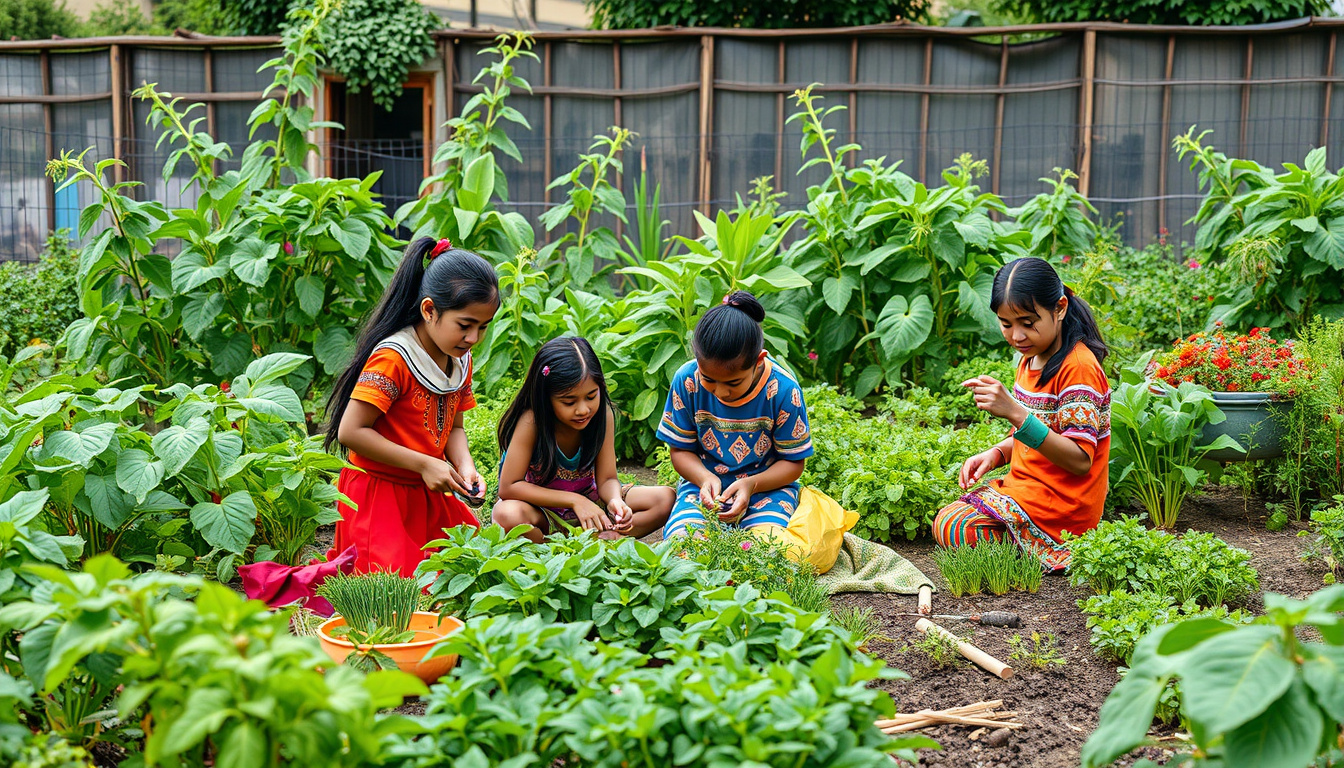Cultivating Change: How Latino Students Embrace Sustainable Agriculture for a Greener Future

In today's world, where environmental concerns are at the forefront of many conversations, the role of education in sustainable practices cannot be overstated.
On May 10, 2025, Central Carolina Community College in Pittsboro, North Carolina hosted a significant event dedicated to raising awareness about sustainable agriculture among Latino youth.
Under the banner 'Our Green Heritage: Building a Legacy in Organic and Sustainable Agriculture,' this gathering brought together approximately 40 Latino students from various counties to explore hands-on learning and engage in meaningful discussions about the agricultural industry.
From fruit harvesting to insightful workshops, the participants learned about sustainable practices that not only protect the environment but also reshape their own futures.
This article delves into the importance of such initiatives and the lasting impact they have on shaping a greener tomorrow.

A Final Thought
- Latino students are actively engaging in sustainable agriculture to honor their cultural heritage.
- Hands-on experiences in sustainable farming are shaping future career opportunities for Latino youth.
- The event fosters community connections essential for advancing regenerative agricultural practices.
The Journey to Sustainable Agriculture: Education and Engagement
As the world grapples with the challenges posed by conventional agriculture—marked by its heavy reliance on pesticides and other chemicals—initiatives aimed at promoting sustainable agriculture are becoming increasingly vital.
On May 10, 2025, Central Carolina Community College in Pittsboro, North Carolina, hosted a transformative event called 'Our Green Heritage: Building a Legacy in Organic and Sustainable Agriculture.' Approximately 40 Latino students from various counties participated in this hands-on event, which emphasized both education and engagement.
With organizations like Juntos NC, Future Farmers of America, and Student Actions with Farmworkers contributing to the foundation of the program, attendees were enlightened on the stark contrasts between conventional and sustainable farming practices.
For instance, speakers shared personal narratives such as Hector Lopez's switch from conventional farming to organic methods after realizing the negative health impacts of chemical use on his community.
Programs like CCCC's 'Seeds of Change' provide invaluable mentorship, guiding farmers on their journey to adopting sustainable methods.
Moreover, speakers like Anthony Espinoza highlighted the importance of fostering connections between producers and consumers, advocating for regenerative agriculture as a means of strengthening these ties.
Historical insights into Latino agricultural traditions were also a focal point, as Angelina Oliva noted how such practices align with modern sustainable principles.
Future initiatives, including guided tours, aim to further connect Latino youth with their cultural heritage while equipping them with the necessary skills for careers in sustainable agriculture.
This ongoing journey not only nurtures the land but also inspires a new generation to take pride in their roots.
Cultural Heritage and Future Opportunities in Organic Farming
The event also showcased interactive workshops where students learned practical skills in organic farming, such as understanding soil health, crop rotation, and pest management without harmful chemicals.
Participants engaged in active discussions about career pathways in this growing field, drawing from the rich agricultural history of their communities.
By incorporating elements of their cultural background into sustainable practices, the students gained insights into how traditional farming methods can positively impact modern agriculture.
Notably, the concept of agroecology was introduced, highlighting the importance of biodiversity and ecosystem health.
This educational experience emphasized that organic farming is not merely a trend; it represents a viable solution to environmental degradation—a point resonating deeply with the students.
Furthermore, they discovered the importance of community-supported agriculture (CSA) programs in promoting local food systems that prioritize health and sustain local economies.
With the knowledge gained at the event, these future leaders are equipped to challenge conventional practices and advocate for a healthier planet, ensuring that their journey toward organic farming not only honors their heritage but also creates positive change for future generations.
Remember to sign up for our newsletter to get the newest stories from around the world.
We publish a quarterly magazine available in IOS, Android and Web reader. Stories and articles curated from amazing people all around the world.



